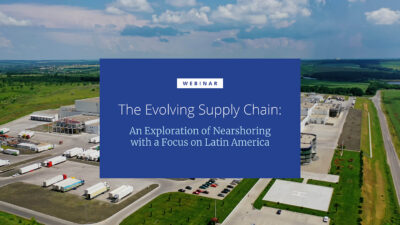As workplaces evolve, the strongest amenity any company can offer in the new work experience is its people. Belonging, the ultimate pursuit, is about establishing meaningful connections and unlocking a sense of purpose within the workplace. Amid global shifts including politics, economics, climate change, and racial unrest, as well as uncertainty created by evolving work styles and the widening talent gap, belonging has emerged as a crucial component of the workplace experience.
Investments in Diversity, Equity, and Inclusion (DEI) have skyrocketed. In 2020, U.S. organizations invested $7.5B in DEI initiatives, expected to double to $15.4B by 2026. Despite these investments, employees often feel isolated, and a lack of perceived inclusion leads to missed opportunities for job seekers. Hence, to realize the full benefits of DEI investments, a sense of belonging must be fostered within organizations. Investing in belonging is not just a response to current challenges but an essential strategy for the future. It is the reason employees will choose to come back to the office, to spend productive time with others and experience the power of human connection in achieving shared goals.
 Workplace Advisory
Workplace Advisory
“Diverse companies earn 2.5x higher revenue per employee and boast productivity rates over 35% higher than their less diverse counterparts. Such organizations are 36% more likely to have above-average profitability.”
The Power of Diversity
Diverse companies earn 2.5x higher revenue per employee and boast productivity rates over 35% higher than their less diverse counterparts. Such organizations are 36% more likely to have above-average profitability. However, creating diversity in the workforce extends beyond company policies, requiring equitable and accessible educational systems, making it critical to address disparities at their roots.
Initiatives such as apprenticeships and returnships for individuals who have taken career breaks reflect progress, but there is still much work to be done. Although diversity can be hired, activating it and ensuring everyone feels like they truly belong requires more.
Creating Equitable Experiences
Building equitable experiences is essential for fairness and inclusivity in the workplace. Organizations can ensure that all employees have an equal chance to succeed by addressing, challenging, and dismantling imbalances of opportunities and systemic barriers. A culture of equity values diverse perspectives and is grounded in trust, transparency, and continuous self-assessment. This includes ensuring equity aligns authentically to the organization’s values, being transparent and accountable, and remaining open to changes that emerge from progress monitoring.
Cultivating Inclusive Environments
Inclusive environments enable diverse individuals to contribute their unique experiences and perspectives. These environments value and respect disparity of perspective where all employees feel welcomed, accepted, and empowered to contribute their unique experiences. Inclusive organizations actively accommodate diverse needs, fostering open communication and psychological safety that enhance collaboration, innovation, and a sense of belonging. Achieving inclusion involves making space for differing perspectives, providing diverse contribution avenues, maintaining feedback loops, and openly discussing both successes and failures.
Achieving a State of Belonging
When there is diversity in an organization and an environment with equitable and inclusive behaviors, employees are likely to feel a sense of belonging. They will feel seen, connected, supported, and proud. This empowers employees to bring their whole selves to work, fostering a shared purpose and deep collective connection that transcends location and individual differences. Achieving this state of belonging requires no invitation and encourages everyone to contribute to its conservation.
Playing Your Part
Every individual can contribute to fostering a sense of belonging by focusing on day-to-day interactions, making space for others in conversations, and modeling allyship behavior. Belonging cannot be fully realized unless there is also an investment in inclusive and equitable practices, both operationally within the business as well as fostered dynamically through culture and leadership. While diversity is a crucial first step, it is just the beginning.
Here are some practical ways that organizations can cultivate belonging in the workplace:
- Acknowledge differences in perspectives – openly discuss and articulate the benefits in all views
- Offer mentorship and support – build bonds outside of functions and teams to broaden organizational views and advance employee growth
- Recognize and appreciate contributions – publicly recognize behavior and encourage inclusive daily practices
- Foster social connections – go beyond the work to create personal connections and team build, do this authentically, food, culture and the arts are great tools!
As organizations continually work to strengthen their DEI initiatives, it is critical to remember that cultivating belonging is not a one-time initiative but an ongoing journey of empathy, equity, and inclusion. In the quest for belonging, the small things are the big things, and the long road is the short road. True belonging requires a commitment to inclusive and equitable practices at all levels of the organization, fostering an environment where everyone feels valued, heard, and empowered to bring their authentic selves to work.



 Martin Woodrow
Martin Woodrow Chris Zlocki
Chris Zlocki

 Bret Swango, CFA
Bret Swango, CFA
 Stephanie Rodriguez
Stephanie Rodriguez